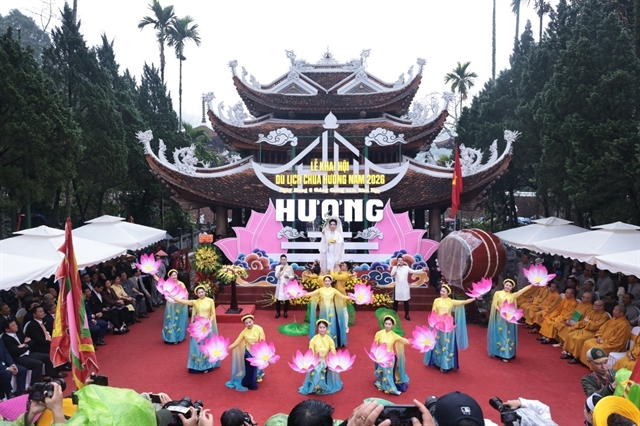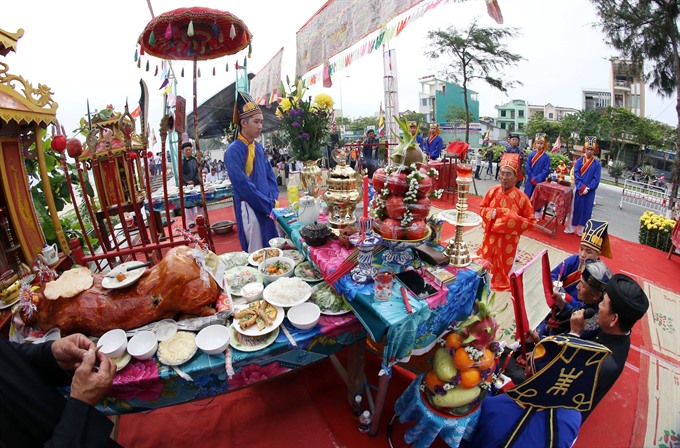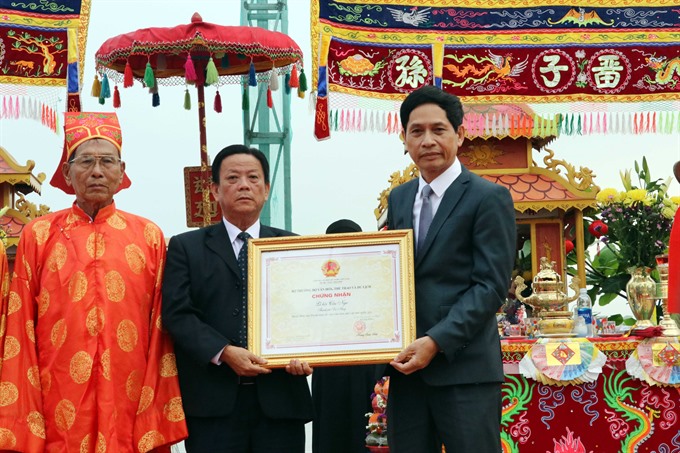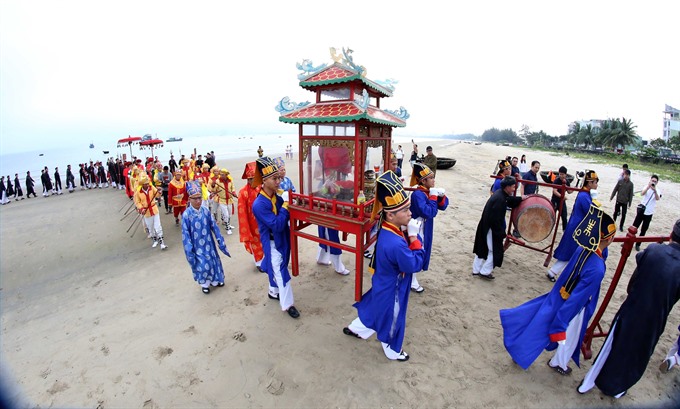 Life & Style
Life & Style

The Ministry of Culture, Sports and Tourism presented the National Intangible Heritage certificate for the Cầu Ngư (fish-worshipping) festival to the central city of Đà Nẵng in a ceremony on Wednesday, February 20. The ceremony becomes the latest of seven National Intangible Heritage items approved by the ministry in 2019.
 |
| Tradition: Elders from Thanh Khê District pray with offerings as part of the Cầu Ngư (fish-worshipping) festival in Đà Nẵng. The annual festival was recognised as a National Intangible Heritage. — VNS Photo Lê Lâm |
ĐÀ NẴNG — The Ministry of Culture, Sports and Tourism yesterday presented the National Intangible Heritage certificate for the Lễ hội Cầu Ngư (Whale Worshipping festival) to the central city of Đà Nẵng. The festival becomes the latest of seven National Intangible Heritage items approved by the ministry in 2019.
Annual whale worshipping festivals at fishing villages in the coastal districts of Liên Chiểu, Thanh Khê, Ngũ Hành Sơn and Sơn Trà, which have been held for 15 years in a row, are a spiritual ritual of fishing communities in coastal Việt Nam where residents pray for a bumper fishing year and for peace.
“It’s an honour for local people that the oldest festival was recognised as a national heritage,” said director of the city’s Culture and Sports Department Huỳnh Văn Hùng. “The festival is seen as a precious cultural asset for the spiritual life of the people and fishing – a key trade for Đà Nẵng.
“We will promote the festival as a major annual cultural landmark of the city to attract tourists to experience the longest ritual of the fishing community in Đà Nẵng.”
 |
| Recognition: The National Intangible Heritage certificate for the Cầu Ngư (fish-worshipping) festival is presented to a representative of the city of Đà Nẵng. — VNS Photo Lê Lâm |
He said the city will continue to preserve its cultural values and precious festivals that have been under threat of disappearing amidst rapid urbanisation.
Hồ Văn Tham, an official of the festival, said the event was one of the most important in the cultural lives of fishermen before the start of the fishing season.
He said the festival aims to pray for luck for all fishermen and their families.
“We believe the god of the sea will hear our prayers and that belief helps us avoid disasters and trouble during sea trips year-round,” Tham said.
He said the festival also marked the end of the lunar New Year holidays among fishing communities and fishermen would set sail on new fishing trips afterwards.
 |
| Opening ceremony: A procession of the god of the sea is carried by local fishermen as a prelude for the fishing festival in Đà Nẵng. — VNS Photo Lê Lâm |
The earliest edition was held in 1893 in Thanh Khê village, home to 3,200 fishermen. It takes place on the 16th day of the first lunar month of the year, which is also the start of the fishing season. Most fishermen go to sea as soon as it ends.
Fishermen launch paper flower garlands to sea to pray for the dead and honour the god of the sea. Then elderly fishermen carry a sedan from the sea to the beach.
The god of the sea is presented with offerings of fine foods. Local folk games are also played.
The festival is the third National Cultural Intangible Heritage designation for the city after the Stone Arts Sculpture of Non Nước craft village in Ngũ Hành Sơn District in 2014 and Tuồng Xứ Quảng (Quảng Nam’s classic drama) in 2015.
Last year, the Điện Hải Citadel in the city was recognised as a National Special Relic by the Prime Minister. — VNS




